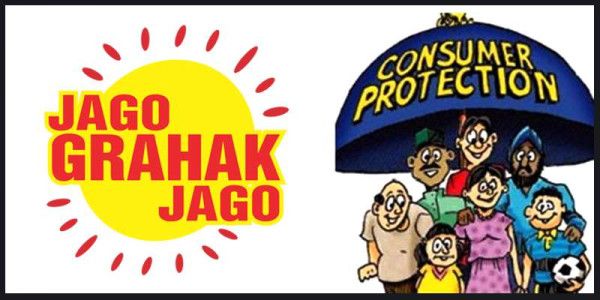
India, 9th Dec 2024 – In a significant push toward safeguarding consumer rights, India has seen the emergence of a stronger legal framework and innovative platforms like ConsumerCourt.in. These advancements are reshaping how grievances related to defective products, poor services, and unfair practices are resolved, offering consumers quicker and more effective access to justice.
A Streamlined Consumer Justice System
Consumer courts in India have become pivotal in resolving disputes efficiently and transparently. These courts, established under the Consumer Protection Act, operate as a three-tier system designed to address cases based on claim value:
- District Forums: Handle cases with claims up to ₹1 crore.
- State Commissions: Oversee cases between ₹1 crore and ₹10 crore, including appeals from District Forums.
- National Consumer Disputes Redressal Commission (NCDRC): Address claims exceeding ₹10 crore and serve as the appellate authority for State Commission decisions.
This tiered approach ensures that disputes are resolved at the appropriate level, reducing delays and enhancing efficiency. Further simplifying the process, the E-Daakhil portal now enables consumers to file complaints online, eliminating geographical barriers and minimizing physical paperwork.
Revolutionary Amendments in the Consumer Protection Act, 2019
The Consumer Protection Act of 2019 introduced transformative changes to protect and empower consumers. Key provisions include:
- Central Consumer Protection Authority (CCPA): This regulatory body is tasked with promoting consumer rights, addressing unfair trade practices, and ensuring accountability among manufacturers and service providers.
- Product Liability: Manufacturers and service providers are now legally accountable for harm caused by defective goods or services, setting a precedent for consumer safety.
- Revised Pecuniary Limits: Updated financial thresholds ensure cases are filed at the correct judicial level, reflecting current economic conditions.
These reforms, coupled with the integration of digital tools, have made consumer justice more accessible and efficient, aligning with the evolving needs of India’s dynamic economy.
How ConsumerCourt.in Supports Consumer Rights
To complement these institutional reforms, ConsumerCourt.in has emerged as a crucial platform, offering comprehensive resources for consumers navigating disputes. The platform’s key features include:
Daily Court Judgments
Consumers can access daily judgments from consumer courts across India, providing valuable insights into ongoing cases, their outcomes, and the judicial process.
Customer Care Directory
ConsumerCourt.in offers contact information for customer service teams of major corporations and service centers. This allows consumers to resolve disputes directly with companies before resorting to legal action. Visit the Customer Care Directory for details.
Free Legal Assistance
The platform provides free legal help to empower consumers with expert advice, ensuring they can make informed decisions when pursuing justice.
“ConsumerCourt.in is committed to making justice accessible to every Indian,” said Bhanu Pratap, spokesperson for Consumer Court. “Through our resources, we bridge the gap between consumers and legal support, making it easier for individuals to assert their rights.”
Simplified Complaint Filing and Appeals Process
Filing a complaint in consumer courts has never been easier, thanks to platforms like the E-Daakhil portal. Consumers can draft their complaints, attach supporting documents, and file them online for quick processing.
If dissatisfied with a decision, consumers have the right to appeal to the next higher authority within 30 days. Cases are typically resolved within three to five months, depending on their complexity. This streamlined process reduces delays and ensures timely resolutions, fostering greater trust in the judicial system.
Promoting Accessibility and Efficiency Through Technology
The digital-first approach adopted by ConsumerCourt.in complements India’s broader goals of enhancing access to justice through technology. By reducing paperwork and enabling online tracking of cases, the platform ensures that consumers from even the remotest areas can seek recourse efficiently.
Additionally, the platform’s collaboration with the E-Daakhil portal has expedited complaint resolution, making consumer justice not just a legal mandate but a practical reality for millions.
Why ConsumerCourt.in Stands Out
ConsumerCourt.in is more than just a resource hub—it is a one-stop solution for consumer justice. From educating consumers about their rights to providing hands-on legal support, the platform plays a transformative role in ensuring that justice is not only accessible but also actionable.
Key advantages include:
- Access to updated judgments for case references.
- Direct connections to customer service teams for faster resolution.
- Free expert legal advice tailored to individual disputes.
Contact Information
For more information, please visit:
- Website: www.consumercourt.in | www.consumercourt.net
- Email: info@consumercourt.in
About Consumer Court
Consumer Court is India’s leading platform for empowering consumers, offering vital resources to simplify the complaint process and secure timely resolutions. Through a blend of legal expertise and innovative technology, it strives to uphold consumer rights across the nation.
Media Contact
Organization: Consumer Court
Contact Person: Bhanu Pratap
Website: https://www.consumercourt.in/
Email: Send Email
Country: India
Release Id: 09122421013
The post Empowering Consumer Justice in India The Role of Consumer Courts and ConsumerCourt.in in 2024 appeared on King Newswire. It is provided by a third-party content provider. King Newswire makes no warranties or representations in connection with it.
Disclaimer: The views, suggestions, and opinions expressed here are the sole responsibility of the experts. No Wisconsin Beacon journalist was involved in the writing and production of this article.